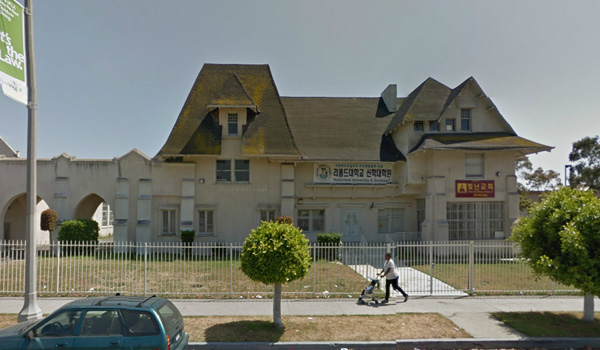
Posted November 25
As WAHA celebrates its 30th Anniversary we take note of WAHA’s effectiveness as a preservation advocacy organization. For that continued commitment, WAHA has established a WAHA Preservation Defense Fund. WAHA has matured and grown in its expertise over time and has successfully negotiated compromises that resulted in better developments or rehabilitation. WAHA was not able to negotiate a compromise regarding the Roger Williams Baptist Church/Bishop Residence development prior to the approval of a project to convert the Bishop Residence to student housing. The issues were described in detail in the October Newsletter.
When the Los Angeles City Council upheld the use of a categorical exemption on September 17, WAHA exhausted all administrative remedies to effect change. Aware that the issues in this case may not only effect this historic site but the manner in which changes to historic properties are reviewed in the future, the WAHA retained counsel (Amy Minteer of Chatten-Brown & Carstens LLP) and a petition to Superior Court was filed on October 17.
The petition seeks to stay the City’s Certificate of Appropriateness (the document the City uses to approve a project in the North University Park Specific Plan area), prohibit the City and the owner from proceeding with the project until the CEQA issues are resolved, void the City’s project approvals, and require adequate environmental review. The City and the owners were notified and served the petition in the time frame required.
At the WAHA General Membership meeting in April, WAHA’s membership voted to pursue all legal means to assure proper CEQA clearance for this project. On September 10, by unanimous vote, the Board voted to retain counsel, aware that the issues in this case may affect not only this historic site but also the manner in which changes to historic properties are reviewed in the future.
This project involves multiple historic structures which apparently are being redeveloped over time; changes that are not compliant with Secretary of Interior Standards, according to numerous qualified historians; a significant change of use that may permanently change the historic nature of at least one of the structures on the property, that is, the Bishop Mansion; the complete gutting and removal of all (or vast majority) of the character-defining interior features in the publicly-accessible portions of a National Register Eligible historic resource, an action specifically not allowed as a Class 31 categorical exemption under CEQA; and segmentation of the development of this site.
WAHA is committed to a positive outcome so that categorical exemptions are not artificially and unjustifiably applied to our historic resources. The City’s expressed internal guideline that a project is exempt from CEQA if it only has a single entitlement, but an exemption would not automatically apply if a project needs two or more entitlements, does not provide for adequate environmental review. In this instance, the developer withdrew a second entitlement request presumably to reduce the number of entitlements to one to meet this standard. As President Patterson expressed: “It is imperative that we confront the blatant disregard of the laws that provide us some of the most basic protections of our preservation advocacy efforts.”
